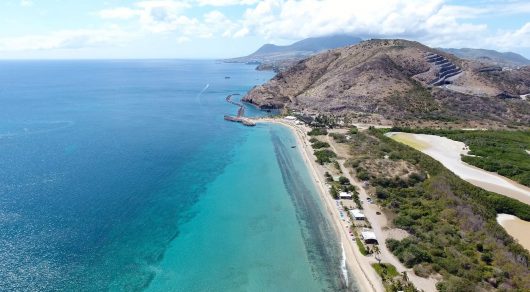A Look at Human Rights in St. Kitts and Nevis
 St. Kitts and Nevis is a state comprised of two islands located between the Atlantic and the Caribbean Sea. Their system of government is a parliamentary democracy. For the most part, human rights in St. Kitts and Nevis are protected and not under threat, but the small island nation has faced several issues.
St. Kitts and Nevis is a state comprised of two islands located between the Atlantic and the Caribbean Sea. Their system of government is a parliamentary democracy. For the most part, human rights in St. Kitts and Nevis are protected and not under threat, but the small island nation has faced several issues.
The national constitution prohibits torture and cruel and unusual punishment, but police in St. Kitts and Nevis can be aggressive. The police do not need a warrant to arrest someone. As a result, citizens will often not report crimes for fear of retribution. The lone prison in the country was built in 1840 and shows wear. It is overcrowded; a facility built for a capacity of 150 inmates currently holds around 270.
Despite this, conditions there are not necessarily inhumane. A U.S. State Departmentt report on human rights in St. Kitts and Nevis states that “prisoners and detainees had reasonable access to visitors, were permitted religious observances and had reasonable access to complaint mechanisms and the ability to request inquiry into conditions. The government investigated and monitored prison conditions, and the prison staff periodically received training in human rights.”
While arrest warrants are not necessary, the constitution does grant accused citizens the presumption of innocence and the right to a fair and public trial. There are no political prisoners in St. Kitts and Nevis.
The United Nations has identified rape and violence against women as an issue regarding human rights in St. Kitts and Nevis. Rape is a criminal offense, but spousal rape is not. Women can file rape claims, but may often be reluctant to do so. St. Kitts and Nevis passed the Domestic Violence Act of 2014 into law to address some of these issues.
Child abuse is a problem in St. Kitts and Nevis. Corporal punishment is legal here. Reports of sexual assault against children are not uncommon, despite such acts carrying a stiff criminal penalty.
The treatment of homosexuality is also a concern regarding human rights in St. Kitts and Nevis. Homosexual acts are still criminalized and carry a certain level of societal stigma. In its review of human rights in St. Kitts and Nevis, the United Nations called for the decriminalization of homosexuality on the islands.
The state of human rights in St. Kitts and Nevis is a mixed bag, but perhaps not an unoptimistic one, nor necessarily uncommon for developing democracies. Many of the human rights issues that do exist stem not from the law but from a failure to effectively implement and enforce it. The country has shown a desire to improve its ways, and time will tell whether or not it successfully follows the U.N.’s recommendations.
– Andrew Revord
Photo: Flickr
